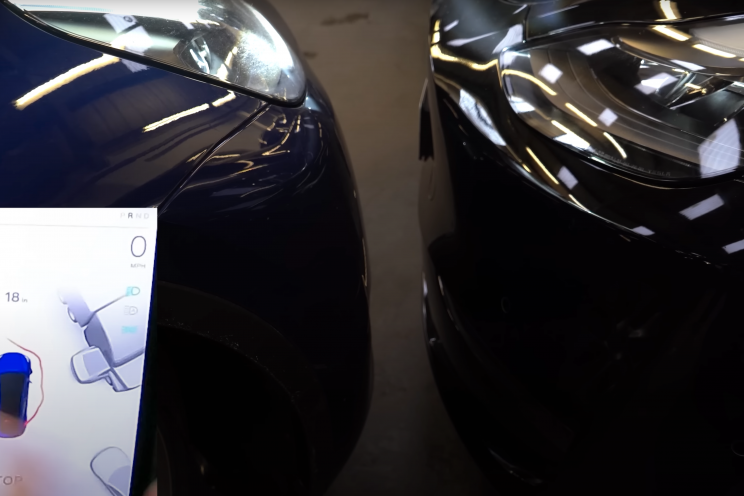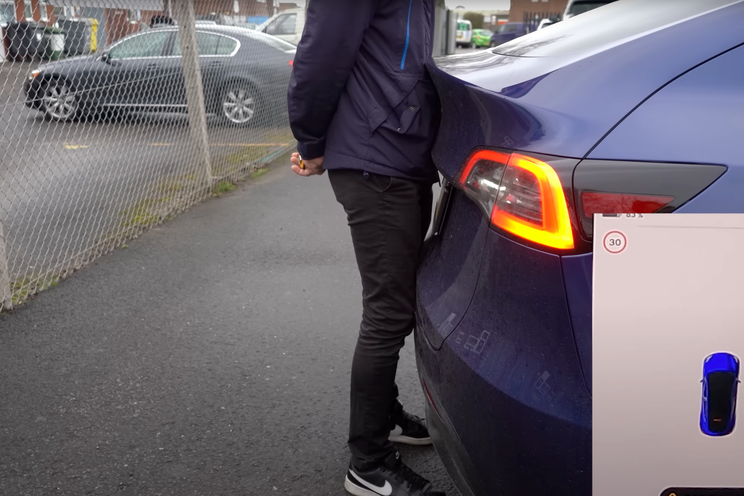First it was lumbar adjustment for the front passenger, then it was carpet in the front boot, shortly after the mobile charger disappeared – and now Tesla has removed front and rear parking sensors in the Model 3 and Model Y in a quest to save money and improve profit margins for shareholders.
Removing parking sensors sounds like a great idea if you have the technology to replace traditional parking sensors. But, Tesla currently doesn’t. And as you’d expect, the results are predictably terrible.
Tesla removed traditional ultrasonic parking sensors, which use ultrasonic waves to detect the distance of objects from the front or rear of a vehicle, and now instead relies on camera vision only to build an image of the vehicle’s surroundings.
That image is then meant to give the vehicle an accurate assessment of how close it is to objects.
An independent EV dealer and Tesla owner in the UK shot a video and demonstrated just how bad Tesla vision is when putting an updated Tesla Model Y through a number of basic parking situations.
In the video the car can be seen reversing into a pedestrian at low speed, while claiming it still had room to continue further back.
Other parts of the video show the car’s situational awareness map constantly jumping around. At one point it shows a large truck in the way of the car, even though none of the vehicles around the car ever moved during the demonstration.
There are also parts of the video where the parking tech stops working altogether for a brief period.
Tesla doesn’t offer reverse autonomous emergency braking (technology that stops the vehicle if it’s about to reverse into a person or vehicle behind it or approaching from the side), which is basic safety technology available on many new cars.
It’s pretty clear that the tech is woefully underdeveloped and needs a lot of work.
Tesla is constantly working on improving the technology and it’s understood a software update will fix this down the track – owners can also still use the reverse camera, which remains operational.
Until then, owners need to just rely on their own vision instead of trusting the numbers shown on the screen.
This tech fail mimics regular phantom braking complaints from Tesla owners after the brand disabled and stop shipping cars with radars built in, instead relying solely on camera vision.




